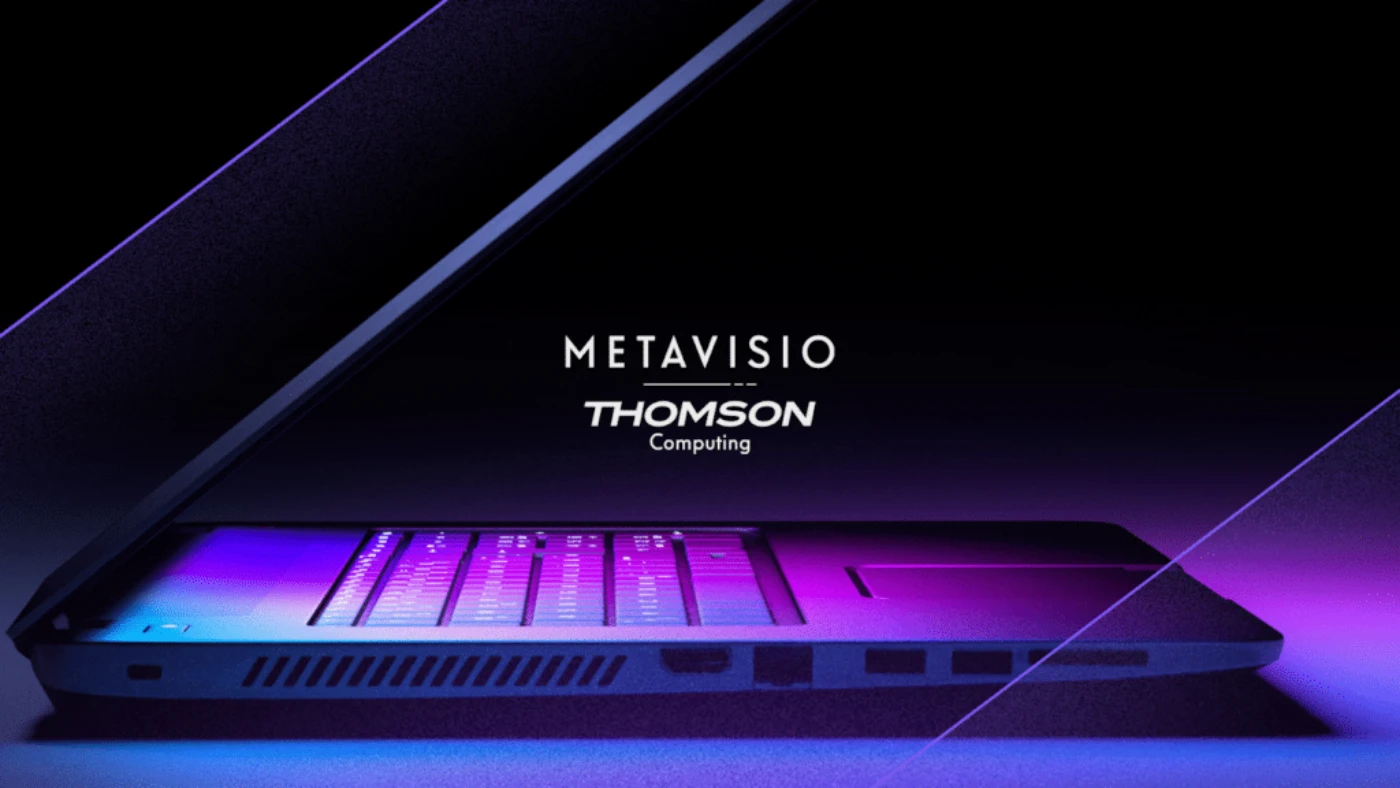Metavisio has unveiled a Web3-enabled laptop, specifically designed to offer native Web3 experiences.
Metavisio, via its subsidiary Thomson Computing, has combined advanced cryptographic and financial technologies to develop this device, which is built on a proprietary operating system.
This innovation marks the culmination of 3.5 years of development, making Metavisio and Thomson Computing the first fully vertically integrated provider of hardware and software for the Web3 era.
The project has received a significant boost from a recent €50 million SAFE financing round, secured through American AI and Hardware Investments, which aims to accelerate the company’s growth in blockchain technology and hardware solutions.
The Web3-enabled laptop integrates Thomson Computing’s hardware with io.finnet’s trustless Multi-Party Computation (tMPC) software and an advanced cold storage wallet.
This setup offers enhanced security by eliminating single points of failure, a crucial feature in light of the significant sums stolen from centralized exchanges—$1.7 billion in 2023 alone and $3.8 billion the previous year.
By incorporating cold storage directly into the device, users gain complete control over their crypto assets, mitigating risks associated with centralized custodians.
Additionally, the laptop’s next-generation operating system merges Web3 functionalities with traditional computing, allowing seamless interaction with decentralized networks while maintaining familiar OS features.
Key capabilities include integrated dApp functionality, a proprietary Thomson Computing wallet, and a token-based ecosystem that rewards users for resource sharing and other actions.
The device also features private satellite internet connectivity for enhanced privacy and security.
This innovative approach blends blockchain-native technologies with conventional computing power, setting a new standard for how users engage with decentralized networks.
The first version of the Web3 operating system (Web3 OS V 1.0) is set for deployment in early 2025, alongside the retail and enterprise wallets. While the company continues to refine the hardware composition and timing for prototype production, the laptop is expected to retail globally at prices ranging from €499 to €2000.



